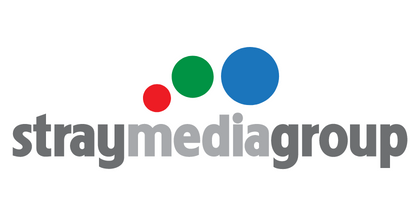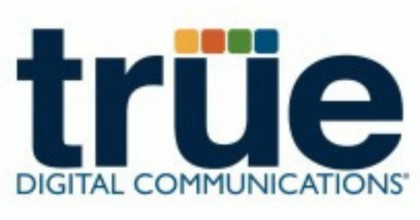
Top Crisis Management Companies
In today’s unpredictable business landscape, having a reliable crisis management partner is essential to safeguard your organization’s reputation and operations. Our carefully curated list of top crisis management companies provides insights into industry leaders known for their expertise in risk mitigation, disaster recovery, and business continuity planning. Each company is reviewed based on their performance, client feedback, and ability to handle diverse challenges effectively. Whether you’re preparing for natural disasters, cyber threats, or PR crises, these trusted providers offer tailored solutions to help you navigate uncertainties. Explore our listings to find the best crisis management partner for your needs.
List of the Best Crisis Management Companies | Top Crisis Management Companies

-
Employees: 51 to 200
-
Min. Project amount: $25000
-
Country: U.S.A

Ad Monkeys
-
Employees: 2 to 10
-
Min. Project amount: $25000
-
Country: U.S.A

Cultivating Creative
-
Min. Project amount: $25000
-
Country: U.S.A

Stray Media Group
-
Employees: 2 to 10
-
Min. Project amount: $25000
-
Country: U.S.A

BeBizzy
-
Min. Project amount: $25000
-
Country: U.S.A

Oliver Russell
-
Employees: 11 to 50
-
Min. Project amount: $25000
-
Country: U.S.A

Idaho Style
-
Employees: 2 to 10
-
Min. Project amount: $25000
-
Country: U.S.A

Giant Donut Marketing
-
Employees: 2 to 10
-
Min. Project amount: $25000
-
Country: U.S.A
-
Employees: 11 to 50
-
Min. Project amount: $25000
-
Country: U.S.A

WDD We Do Digital
-
Employees: 11 to 50
-
Min. Project amount: $25000
-
Country: U.S.A
1.What is crisis management, and why is it important for businesses?
Crisis management involves identifying, preparing for, and responding to potential threats that could disrupt a business’s operations, reputation, or financial stability. It’s crucial because a well-managed crisis response minimizes damage, ensures business continuity, protects stakeholders, and helps maintain public trust.
Crisis management is the process of preparing for, responding to, and recovering from unexpected events or situations that could potentially harm a business. These crises can take various forms, such as natural disasters, cybersecurity breaches, financial downturns, public relations issues, or supply chain disruptions. Effective crisis management involves identifying potential risks, developing comprehensive plans and strategies to address those risks, and implementing a response that minimizes the impact on the business.
Crisis management is crucial for several reasons:
Minimizing Damage: A well-prepared crisis management plan helps limit the damage to a business’s operations, assets, and reputation. It ensures that the organization can act swiftly and efficiently to mitigate the effects of the crisis, whether it’s a cyberattack, a product recall, or a natural disaster.
Business Continuity: During a crisis, the goal is to ensure that essential operations continue running, even if temporarily disrupted. A strong crisis management plan includes business continuity strategies that allow organizations to maintain services, protect key resources, and quickly return to normal operations.
Protecting Stakeholders: Crises often affect various stakeholders, including employees, customers, suppliers, and investors. Effective crisis management ensures that communication is clear, transparent, and timely, providing reassurance and minimizing panic or confusion among stakeholders. This protection fosters trust and confidence in the organization.
Maintaining Public Trust: A company’s ability to respond effectively to a crisis can greatly influence how it is perceived by the public. Businesses that manage crises well often emerge stronger and with their reputation intact. On the other hand, poor crisis management can lead to long-term damage to brand image, customer loyalty, and market position.
Risk Mitigation: By identifying potential threats and proactively addressing them, businesses can prevent or reduce the likelihood of a crisis occurring. Crisis management planning helps businesses be prepared for unforeseen events, ensuring they are not caught off guard and can respond effectively when needed.
In short, crisis management is a vital component of organizational resilience. It helps businesses navigate through difficult times, recover faster, and maintain their position in the market.
2.How do I choose the best crisis management company for my needs?
Selecting the right crisis management company is critical to ensuring that your organization is well-prepared for and can effectively respond to potential crises. Here are several key factors to consider when choosing the best crisis management company for your specific needs:
Industry Expertise
Look for a crisis management company that has experience in your industry. Different sectors face unique challenges and risks, so it’s essential that the provider understands the specific issues your business may encounter. Whether you’re in finance, healthcare, manufacturing, or technology, selecting a firm with relevant industry knowledge will help ensure tailored and effective crisis management strategies.Proven Track Record
The company should have a solid track record of successfully managing crises for other organizations. Check for case studies or references that highlight their ability to handle situations similar to those your business might face. A company with experience managing high-stakes situations is more likely to execute a well-coordinated and effective response plan.Client Testimonials and Reviews
Client feedback is one of the best ways to evaluate a crisis management company’s performance. Look for testimonials, reviews, or recommendations from past clients. Positive reviews from businesses with similar needs can give you confidence in the provider’s ability to deliver results under pressure. If possible, speak to previous clients about their experiences to gauge the company’s reliability and effectiveness.Range of Services
Choose a crisis management company that offers a comprehensive range of services to address all aspects of crisis management, such as:- Risk Assessments: Identifying potential risks and vulnerabilities within your business and creating strategies to mitigate them.
- Business Continuity Planning: Ensuring your company can continue operating during and after a crisis, including backup systems, emergency procedures, and recovery plans.
- PR Crisis Management: Managing communication with the media, customers, and stakeholders during a crisis to protect and repair your company’s reputation.
- Incident Response and Recovery: Providing immediate support during a crisis and helping your organization recover quickly.
Customized Solutions
Every business is unique, and a one-size-fits-all approach to crisis management may not be effective. Look for companies that offer customized solutions designed to meet your organization’s specific needs. They should be able to assess your company’s risks, resources, and vulnerabilities and create a tailored plan that addresses your particular challenges.Experience with Similar Crises
Ensure the company has experience handling the type of crisis you might face. Whether it’s a cybersecurity breach, a natural disaster, a public relations issue, or a supply chain disruption, the company should have expertise in managing similar crises. This experience will help ensure a faster, more effective response when the unexpected occurs.Availability and Responsiveness
A crisis management company should be available 24/7, especially in times of urgent need. Check whether the company offers real-time support during crises and is responsive to your requests for assistance. Their ability to act quickly can make a significant difference in minimizing damage and ensuring a swift recovery.Reputation and Accreditations
Research the company’s reputation within the crisis management industry. Check for industry certifications, accreditations, or awards that highlight their expertise and professionalism. Reputable organizations will often have partnerships with recognized institutions and certifications that demonstrate their commitment to high standards.
By considering these factors, you can select a crisis management company that is best suited to support your organization’s specific needs, helping you navigate and overcome potential crises effectively.
3.What services do crisis management companies typically provide?
Crisis management companies offer a broad range of services designed to help businesses prepare for, respond to, and recover from crises, ensuring minimal disruption and damage. Here’s a breakdown of the core services typically provided:
Risk Assessment and Mitigation
Crisis management companies conduct thorough risk assessments to identify potential threats and vulnerabilities within an organization. They evaluate both internal and external risks, including cybersecurity threats, financial instability, natural disasters, and reputational issues. Based on their findings, they develop strategies to mitigate or eliminate these risks before they escalate into crises.Crisis Response Planning
Effective crisis response planning is essential for ensuring a coordinated, efficient reaction when a crisis occurs. Companies help design detailed crisis response plans that outline clear roles, procedures, and communication strategies. These plans ensure that key personnel know exactly how to act, which resources to deploy, and how to prioritize actions in the heat of the moment.Disaster Recovery
Crisis management companies provide disaster recovery services to help businesses recover critical operations following disruptive events. This includes restoring data, systems, and infrastructure to ensure minimal downtime and business continuity. Disaster recovery plans are tailored to the organization’s specific needs, considering factors like data backup, technology infrastructure, and service restoration.Reputation Management
A crisis can damage a business’s reputation, especially if it involves public relations issues. Reputation management services focus on protecting and rebuilding an organization’s public image during and after a crisis. Companies help manage media relations, respond to negative publicity, and implement strategies to regain consumer trust and confidence.Media Handling and Communication
During a crisis, clear and timely communication is essential. Crisis management companies assist in managing media relations by drafting press releases, preparing spokespeople, and handling interviews. They ensure that the message is consistent and aligns with the company’s values, while also addressing public concerns. Proper media handling helps prevent misinformation and ensures transparency.Business Continuity Planning
Business continuity planning ensures that essential functions of a business can continue during and after a crisis. Crisis management companies develop and implement continuity plans that include backup systems, emergency procedures, and resource management strategies. This allows businesses to keep critical operations running while recovering from a disaster or crisis.Employee Training and Awareness
Employees play a crucial role in crisis response. Crisis management companies offer training programs to ensure that employees are prepared for potential crises. These training programs cover topics such as identifying risks, responding to emergencies, crisis communication, and maintaining operational integrity. By educating employees, companies can ensure a coordinated and effective response when a crisis strikes.Real-Time Crisis Support
During a crisis, having immediate, expert support is critical. Crisis management companies provide real-time support to help businesses respond quickly and efficiently. This may involve monitoring the situation, providing strategic advice, coordinating teams, or implementing emergency procedures to manage the crisis as it unfolds.Post-Crisis Analysis and Recovery
After a crisis, it’s important to evaluate the response and identify areas for improvement. Crisis management companies conduct post-crisis analysis to assess the effectiveness of the response and recovery efforts. They gather insights from the crisis, adjust the crisis management plan accordingly, and help the business implement strategies to prevent similar incidents in the future.
By offering these services, crisis management companies help businesses navigate through challenging situations, safeguard their reputation, and ensure they are better prepared for future crises. Their expertise is invaluable in minimizing risk and ensuring long-term stability.
4.Which industries benefit the most from crisis management companies?
Industries such as healthcare, finance, technology, retail, manufacturing, and energy benefit significantly from crisis management services. These sectors often face unique risks, including data breaches, supply chain disruptions, regulatory issues, and natural disasters. Crisis management companies help these industries mitigate risks and recover efficiently.
Crisis management services are essential across various sectors, especially those that deal with high-stakes operations, sensitive data, and complex regulatory environments. Here are some industries that benefit significantly from the expertise of crisis management companies:
Healthcare
The healthcare industry is highly vulnerable to crises, including data breaches, pandemics, regulatory changes, and natural disasters. Crisis management companies help healthcare providers manage patient data security, navigate medical emergencies, and ensure compliance with healthcare regulations such as HIPAA. They also assist with managing public relations during health crises, such as outbreaks or safety concerns, while maintaining patient trust and operational continuity.Finance
The finance sector is at constant risk of cybersecurity threats, financial fraud, and economic crises. Crisis management companies support financial institutions in handling cyberattacks, safeguarding sensitive customer information, and ensuring compliance with regulations like GDPR and PCI DSS. Additionally, they help manage financial reputation issues and guide companies through market downturns or regulatory investigations.Technology
As one of the most data-driven sectors, the technology industry faces significant challenges related to cybersecurity threats, intellectual property theft, product failures, and legal issues. Crisis management services in the tech sector focus on protecting proprietary information, responding to data breaches, handling product recalls, and ensuring rapid recovery in the event of a system outage or security incident.Retail
Retail companies are vulnerable to data breaches, supply chain disruptions, and public relations crises related to product safety or customer experience. Crisis management firms assist with securing customer data, managing inventory or delivery issues, and maintaining brand reputation during product recalls or negative publicity. They also help retailers develop plans for business continuity during disruptions like economic downturns or unforeseen events.Manufacturing
The manufacturing industry faces risks such as supply chain disruptions, equipment failures, labor disputes, and compliance challenges. Crisis management services help manufacturers recover from operational disruptions, implement safety measures to prevent accidents, and manage public perception during product defects or environmental incidents. They also assist with crisis communication, ensuring stakeholders are kept informed during an emergency.Energy
The energy sector, including oil, gas, and renewable energy, is especially prone to crises such as natural disasters, environmental accidents, equipment malfunctions, and geopolitical instability. Crisis management companies help energy companies prepare for and respond to accidents like oil spills or power outages, ensuring regulatory compliance and maintaining public trust. They also play a crucial role in managing risks related to energy price fluctuations or infrastructure failures.Government
Government agencies at all levels need crisis management services to respond to national emergencies, natural disasters, cyberattacks, and political unrest. These companies help governments plan for crisis situations, maintain public safety, and ensure effective communication with citizens. They also support governments in managing public health emergencies, economic crises, and critical infrastructure protection.
By providing tailored crisis management services to these industries, companies can better prepare for and mitigate the impacts of potential crises, ensuring operational continuity, stakeholder trust, and regulatory compliance.




